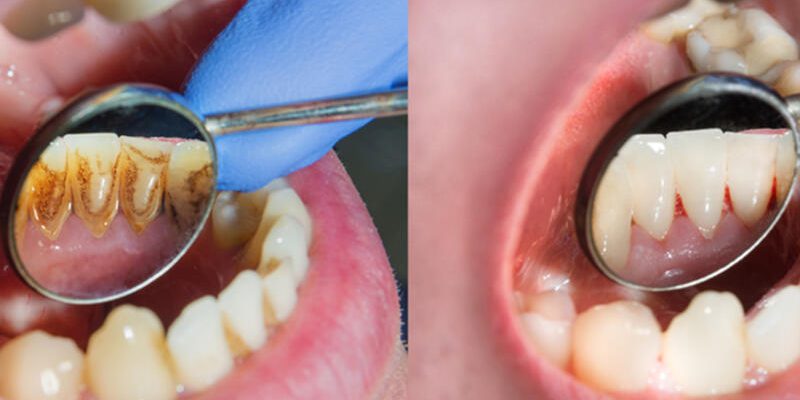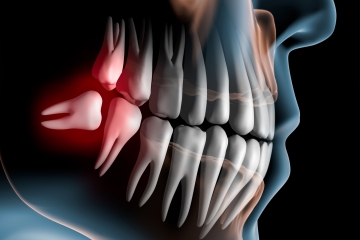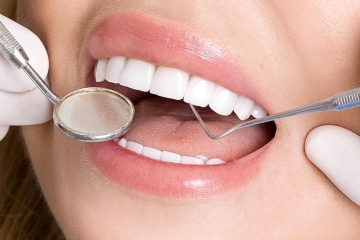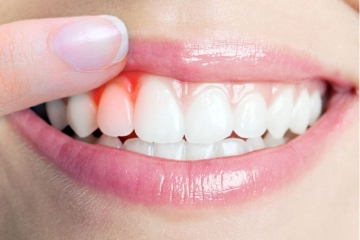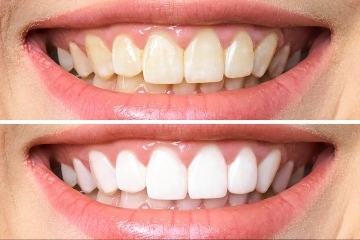Cleaning and Formation of Dental Calculi
Tartar cleaning is the process of cleaning tartar, which accumulates in our mouth due to insufficient oral hygiene, in other words, dental calculi. Dental calculi are caused by the combination of nutrients and bacteria accumulated in our mouth with certain minerals contained in saliva. The main factor that causes the formation of dental calculi is bacterial plaque. If the teeth are not brushed, a layer forms on them that easily separates from the tooth when you scrape it with a nail or brush. This layer is actually a state where many different bacteria have come together Decently. In dentistry, this bacterial deposit that adheres to the teeth is called bacterial plaque. Various minerals in the foods we eat and drink accumulate on the bacterial plaques that form on the teeth, and dental calculi form over time. In other words, if there is no bacterial plaque, the probability of dental calculi decreases significantly.
Dental Stone Cleaning
How is the formation of tartar (tartar) prevented?
The main reason for the formation of tartar is the accumulation of nutrient residues in the mouth and the precipitation of substances in saliva. For this reason, oral and dental hygiene should be given importance in order to prevent dental calculus. Regular and effective brushing of teeth October, in addition to flossing and mouthwash use prevents the formation of tartar. In addition to oral and dental care, people's saliva structure and habits are also a very big factor in the formation of tartar. Since the very frequent consumption of cigarettes, coffee, alcohol, tea and colored drinks has negative effects on the tooth, the formation of dental calculi accelerates. In addition, tartar formation is observed as a side effect in some of the drugs used.
The Damage of Dental Calculi
A dental calculus is a disorder that seems simple, but the consequences are very severe if the necessary precautions are not taken. The biggest damage of dental calculus is the melting of the jawbone that holds the teeth over time and, accordingly, tooth loss occurs. We can summarize the damage of tartar as follows; the nutritional residues left in the mouth due to incomplete oral hygiene combine with the minerals in the saliva and cling to the bacterial plaque. As a result of this association, dental calculi are formed over time. Dental calculi lead to gum discomfort and withdrawals. The body understands the damage of dental calculus and tries to get it out of its body, as always. Because he is aware that this is a foreign substance. Since dental calculi are on the tooth, the body cannot destroy it on its own. In order to do this, he begins to remove the harmful area, that is, the female from himself. But in this way, it tries to provide healing by removing the area where the foreign substance is, that is, the tooth from the body.
We can list the damages of dental calculi as follows;
Gum Diseases: Dental calculi occur where the tooth meets the gum. Due to the nature of tartar, it provides all the conditions necessary for bacteria to live. Buddha means inflammation for the gum with tartar on it. Bleeding is usually the first symptom seen in gum disorders. The end of these ailments reaches dimensions that go up to the fall of the tooth. It is necessary to clean the dental calculi without causing such big problems.
Bleeding of the Gums: Bleeding of the gums is caused by tartar and is the initial stage of gum problems. In some cases, it has been observed that the gums bleed even without brushing the teeth.
Bad Breath: Dental calculi are usually caused by a lack of oral hygiene or improper care. This improper care can cause bad breath, and there will be a big problem with the smell that extra inflamed gums will emit.
Gum Retraction: The body's reaction to inflammation and damage caused by dental calculi is that the gums move away from that area. Although the treatment of gum recession is sometimes very difficult, the consequences are a serious disease.
Tooth Loss: Teeth shake and dislocate due to insufficient bone density due to gum disease and especially withdrawal. The treatment of disorders that reach these dimensions can sometimes not be compensated.
How Often Should Teeth Be Cleaned?
Dental plaques formed as a result of poor cleaning of the tooth surfaces precipitate on the teeth with minerals contained in saliva. Dental calculus is also already formed for this reason. Dental calculi also damage the gum again, causing gum retractions and ailments to patients over and over again. The only way to prevent this is a dental calculus cleaning, which should be repeated every 6 months or 1 year. Since waiting for a disease to come out can lead to difficult situations to return, it will be much more useful to detect the problem at the very beginning. In addition, dental calculi should be cleaned at regular intervals, since dental calculi do not accumulate and do not cause bad December bad breath.
How is Dental Calculus Cleaning Performed?
When cleaning dental calculi, there may be differences in the size of dental calculi, whether there is gum disease or not, depending on the size of the disorder, the method of treatment and duration. If the patient does not have very advanced gum disease, tartar removal is performed with the help of ultrasonic devices called cavitron. this dental stone cleaning process, which lasts between 30 minutes and 45 minutes, is called Decontamination.
In some cases, the accumulation of tartar is very intense and local anesthesia is needed to clear it. All dental calculi under the teeth and gums are cleaned and destroyed one by one. In such cases, sometimes even surgical intervention may be required for the patient. This type of procedure is called curettage. In this type of procedure, where there are more dental calculi and intraoral problems, the session duration increases and the procedure to be performed changes.
Does the Tooth Cleaning Process Hurt?
Cleaning dental calculi is not a painful procedure. In the cleaning process performed without anesthesia, there is no situation that will hurt the patient, except for very small aches. Since anesthesia is already used in the procedures performed in advanced patients, the person does not feel any pain and pain. The experience and knowledge of the physician can also be effective in this pain. According to the difficulty of the procedure performed or according to the patient's pain condition, the doctor can apply anesthesia if desired.
Is Dental Stone Cleaning Harmful?
The issue of whether Decongestant cleaning damages the teeth is one of the most frequently asked questions to dentists. We can see how wrong this idea is by examining the problems that occur in a patient who has not had a dental stone cleaning. The formation of tartar, which is already a major damage to the gums and tooth roots, is eliminated after this cleaning. After cleaning, sensitivity to cold and heat may occur for a short time in the patient's relaxed gums. Buddha is prevented thanks to good oral hygiene. No equipment used during dental calculus cleaning has any properties that are corrosive to teeth or harmful to the gums. Cleaning dental calculi is an extremely useful treatment method that relaxes the gums.
The Difference Between Teeth Whitening and Decontamination?
The teeth whitening process is the process of discoloration of the teeth up to 7 or 8 shades thanks to the whitening gel applied on the tooth. It is applied to remove the yellowish or dark color that the tooth has for a number of reasons. Dental calculus cleaning, on the other hand, is performed to remove tartars on the tooth and relieve the gums. Dental calculi, if any, are definitely cleaned before the teeth whitening process. For more detailed information about whitening, you can read about Teeth Whitening treatment.
Is It Possible to Get Rid of Dental Calculi at Home?
It is not possible to get rid of dental calculi at home, but it is of course possible to maintain good oral and dental hygiene to prevent dental calculi. In order to perform dental calculus cleaning, it is necessary to clean the under teeth that are not visible from the outside. It is impossible for such operations to be performed at home.
Cleaning of Dental Calculi
